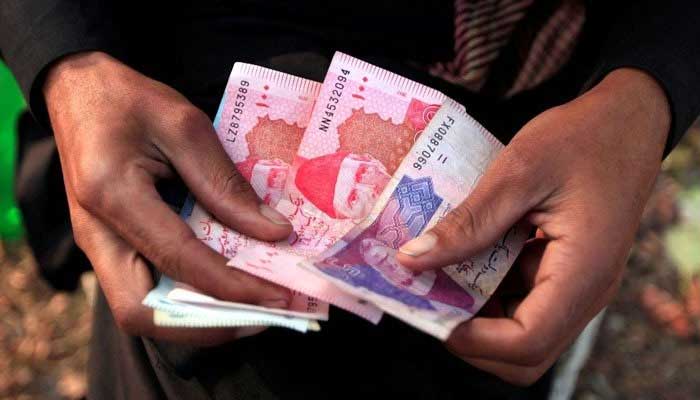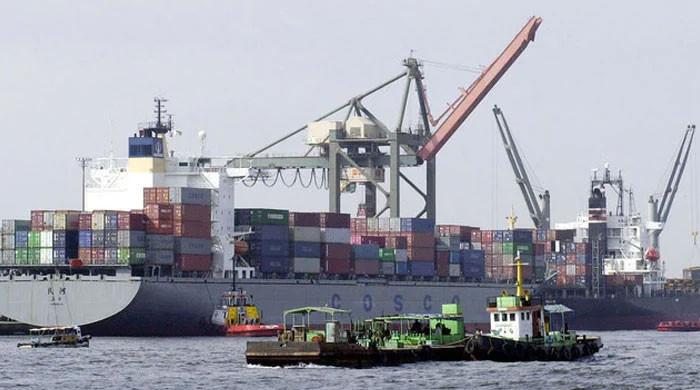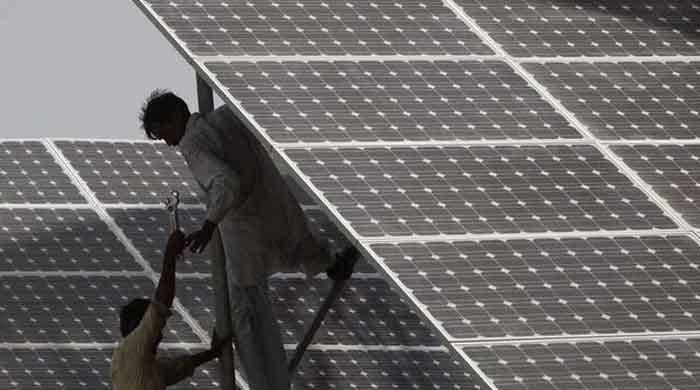NFC: maneuverings and equity
The 10th NFC has been constituted – and the Terms of Reference (ToRs) of the commission have set off a roaring controversy
May 30, 2020

The 10th NFC has been constituted, and the Terms of Reference (ToRs) of the commission have set off a roaring controversy. There are controversies aplenty; however, this one could be highly costly for the country’s political health and may threaten to undermine the foundations of the federation.
One issue with the 10th NFC ToRs is the commission’s composition. The NFC is a constitutional body, with the composition of its membership specified in the constitution. Membership includes federal and provincial ministers of finance and “such other persons as may be appointed by the president after consultation with the governors of the provinces”.
Currently, the prime minister holds the finance portfolio. As such, he is a member and chair of the NFC. There is no provision authorizing him to delegate his powers and functions in this respect to anybody else. Precedence-wise, the Sindh chief minister was also the provincial finance minister during the life of the 7th NFC and duly attended all the commission’s meetings. The chief minister of Sindh has sent a communication to the prime minister in this regard.
From 1974 to date, ‘appointment of such other persons’ has meant one non-statutory member from each province. The words ‘consultation with governors’ would also entail appointment of provincial representatives, not a federal one. However, a battle royal is in the offing over the interpretation of the constitutional clause. One more controversy to the many that are already swirling around. If the current federal argument carries the day, the NFC’s composition would become a tool of political expediency. Its institutional integrity and legitimacy would be lost. One more national institution will bite the dust.
The other issue is the nine-item agenda as part of the ToRs. The first three items are as per the constitution. However, the other six are additions and include federal expenditures related to Gilgit-Baltistan, Kashmir, erstwhile Fata, security, natural disasters, repayment of debt, subsidies, and losses of state-owned enterprises.
One side of the argument would be that the NFC has already allocated a share – 42.5 percent – out of the Federal Consolidated Fund to the federal government. Accordingly, the federal share out of the budgeted Rs5.5 trillion tax revenue in the 2019-20 budget works out to Rs2.4 trillion.
The other side of the argument is that the resources allocated from the Federal Divisible Pool are not sufficient. That, of course, is a very weak argument. After all, what is sufficient and when will sufficiency be achieved? If a precedent is established today for the provinces to bail out the federal government, the half dozen items today can expand to a dozen tomorrow and more thereafter.
Other more serious questions are also thrown up. If the principle of the provinces picking up the tab for the federal government’s expenditures is established, then will they be entitled to ask for expenditure details for scrutiny? There are more serious implications, though. If the provinces begin to pay for more and more of federal government expenses, there may be a demand for the provinces to collect all the taxes themselves and reimburse the federal government’s expenditures. In the event, the federal structure will roll on its head. The federal government’s moves may be undermining the very theoretical basis of a federation and setting the stage for creating a de facto confederation.
The 7th NFC Award is of great significance as it broke the stalemate in the inter-provincial distribution formula and strengthened provincial fiscal autonomy. However, the award is static and the tax revenue debate has been restricted to ‘who can get how much’. The current debate is also about how the centre can extract more out of the provinces.
This is a futile and self-defeating debate. A more productive discussion can be about how the NFC formulation can achieve certain desired socio-economic goals – and one such undisputed objective is to render the tax regime more progressive. As such, the debate needs to move forward towards making the NFC distribution formula advance equity goals.
The basis for resource distribution between the federation and provinces and between provinces is the Federal Divisible Pool, which by virtue of Article 160(3) of the constitution included income and corporate tax, sales tax, export duties on cotton, and excise duties as specified by the president. Jurisdiction over income tax on agriculture was allocated to the provinces.
In 1991 and 1997, the 4th and 6th NFC decided to add central excise duties and import duties, respectively, to the divisible pool. In other words, all federal taxes are now included in the divisible pool. The status of income tax on agriculture has remained unchanged; despite the fact that the separation of the agricultural and non-agricultural tax bases has created a tax shelter for the latter tax payees and facilitated evasion.
Taxes impose a burden on those taxed. The burden can be proportionate to income or proportionately higher or lower relative to income. The burden is termed as incidence and is designated as progressive if the burden of the tax is higher on the rich and regressive if it is higher on the poor. Generally, direct taxes – taxes on income, wealth, property, etc – are said to be progressive and indirect taxes (sales taxes, customs duties, excise duties, etc) are said to be regressive. A tax regime that is progressive is said to be equitable and fair relative to one that is regressive.
In Pakistan’s case, about 40 percent of federal tax revenue is accrued from direct taxes and 60 percent from indirect taxes. However, over two-thirds of income tax is collected in advance as withholding tax is, in effect, indirect in nature. Thus, if the withholding tax component is excluded, the effective share of direct taxes falls to a mere 12 percent, with the effective share of indirect taxes rising to 88 percent. Collection of indirect taxes is relied upon as it is relatively administratively easy and politically low cost. Levy of direct taxes is politically problematic and the government even went to the extent of abolishing wealth tax. In other words, Pakistan’s tax regime is regressive and burdens the poor significantly more than the rich.
The objective of rendering the tax regime equitable can be achieved by correcting the currently skewed balance between direct and indirect taxes and between agricultural and non-agricultural income. This objective requires that the federal-provincial tax sharing mode provides the centre with the incentive to prioritize direct tax collection over indirect taxes
The basic proposal is for the centre to retain 100 percent of income tax – net of withholding tax component – and including income tax on agriculture and share all other tax bases with the provinces. Full retention of (net) income tax is likely to induce the federal government to expend greater effort in collecting tax from the rich, reducing the relative burden on the poor and, thereby, making the tax structure more progressive. The transfer of income tax on agriculture to the centre will remove a distortion in the tax regime, with marginal loss to the provinces.
Calculations have shown that if the non-withholding tax portion of income and corporation tax, including income tax on agriculture, is retained entirely by the federal government and the other indirect taxes – import duties, sales tax and excise duties – are distributed between the centre and provinces in the ratio of 37.5 percent and 62.5 percent, respectively, there will be no gain or loss to either of the two parties. Any future increase in direct tax collection will be a net gain for the centre.
The 10th NFC can negotiate the vertical sharing ratio anywhere between the present 42.5:57.5 and the ‘no-gain-no-loss’ 37.5:62.5. The adoption of the proposal will entail a constitutional amendment to Article 160(3). Of course, commitment to a higher goal will be called for.
The writer was Sindh’s non-statutory member of the 7th NFC and Balochistan’s non-statutory member of the 9th NFC. Twitter: @kaiserbengali
Originally published in The News











